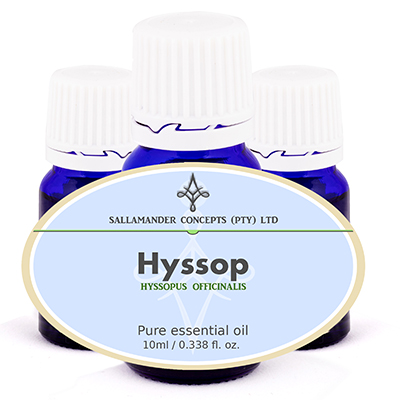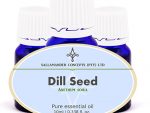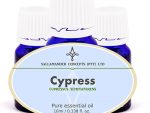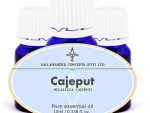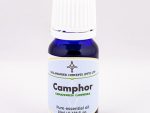Information on Hyssop essential oil
Hyssop Essential Oil is extracted from Hyssopus officinalis Var decumbens, of the Labiatae family and is also known as Azob.
Not to be confused with the other variety of Hyssop which has dangerous effects and may cause convultions and may be carcinogenic.
Hyssop Essential Oil is a rather expensive essential oil, effective in helping to treat female disorders and to relieve monthly water retention, while being excellent to help the respiratory system get rid of mucus and bronchial spasms.
It can be used to treat bronchitis, asthma, influenza and colds, while helping wounds heal and dispersing bruises on the skin.
Oil Properties of Hyssop essential oil
Hyssop Essential Oil has a sweet, warm smell and ranges in color from colorless to pale yellowy-green.
Origin of Hyssop essential oil
This shrub decorates the Mediterranean area, is about 60 cm (2 feet) high and is very attractive to bees.
The name Hyssopus was used by Hippocrates and was derived from the Hebrew word ‘ezob’ which means ‘holy herb’. It is mentioned in the Old Testament, where the herb was used for purification, yet the reference could also possibly refer to Origanum syriacum.
It has a woody, hairy stem, small lance-shaped green leaves and purple-blue flowers and was well known in ancient times, and was referred to in the Bible for its cleansing effect in connection with plague, leprosy and chest ailments.
It was also used for purifying sacred places and as a strewing herb in the Middle Ages, to ward off lice, while the Benedictine monks introduced it to Europe in the 10th century as an ingredient for liqueurs.
Extraction
Hyssop Essential Oil is extracted from the leaves and the flowering tops by steam distillation.
Chemical composition
Some of the main chemical components of hyssop oil are Linalool, 1,8 Cineole, (+)-Limonene, γ-Pinene, Caryolphellene oxide, Pinocamphone
Precautions when using Hyssop essential oil
Hyssop Essential Oil is non-irritant and non-sensitizing, but does contain pinocamphone and should therefore be used in moderation and should be avoided during pregnancy and when breast feeding. Caution should also be observed when it is used by people suffering from epilepsy.
Hyssop essential oil will oxidise easily and should be kept in a dark and cool place, stored in an airtight glass bottle (Preferably in the fridge at a temperature of around 4° Celsius / 39° Fahrenheit).
Please read our page with heading: Safety with Essential Oils before using this oil.
We recommend the following book as an excellent resource regarding safety:
Essential Oil Safety: A Guide for Health Care Professionals by Robert Tisserand & Rodney Young (#ad)
Therapeutic properties
The therapeutic properties of hyssop oil are anti-rheumatic, astringent, antiseptic, antispasmodic, carminative, cicatrisant, digestive, diuretic, emmenagogue, expectorant, febrifuge, hypertensive, nervine, sudorific, stimulant, tonic, vermifuge and vulnerary.
Uses
Hyssop Essential Oil gives a feeling of alertness and helps with anxiety and fatigue and is therefore useful during convalescence for its tonic effect.
It is also effective in cases of respiratory problems and viral infections, such as colds, coughs, sore throats, influenza, bronchitis, asthma, catarrh and tonsillitis.
It helps with colic, flatulence and indigestion, while it helps to regulate circulation and is helpful when used to raise low blood pressure.
During monthly periods, where water retention can be a problem, hyssop oil helps to balance this.
In general, this oil benefits the menstrual cycle and helps with amenorrhea and leucorrhoea.
It has good healing properties and helps with bruises as well.
We have made and bottled a Hyssop Anointing Oil of pure hyssop blended into extra-virgin Olive oil to cut the cost of the oil and to also offer it for immediate use. You can simply use the Anointing Blend – Hyssop with the surety that the dilution rate is correct for anointing healthy adults.
Burners and vaporizers
In vapor therapy, hyssop oil can help with anxiety, mental fatigue, colds, coughs, bronchitis, asthma and infections.
Blended Massage Oil or in the Bath
As a blended massage oil or diluted in the bath, hyssop oil can relieve anxiety, fatigue, respiratory and viral infections, menstrual problems, colic, flatulence, indigestion and boosts the skin with its healing action.
Blended in a Cream
In a cream or lotion, the oil can help the skin to heal, without permanent scarring and can be used to help disperse bruising.
Summary
Hyssop Essential Oil is a powerful oil and helps to relieve respiratory problems, digestive disorders, genito-urinary conditions and skin conditions, like bruises, eczema, inflammation and dermatitis.
Hyssop oil should be avoided when pregnant or when breast feeding and caution should be observed when it is used by epileptics.
Suggested Dilution Rates
On the skin
Adult:
Face: 0.5% to 1.5%
Body: 0.5% to 3%
Bath: 0.5% to 4%
Epileptics: Avoid, or use a low dilution rate and play it safe.
3 to 24 months:
Avoid topical use of this oil.
2 to 12 years:
Avoid topical use of this essential oil
12 to 15 years
Face: 0.5% to 1.5%
Body: 0.5% to 3%
Bath: 0.5% to 3%
Pregnancy
Avoid topical use of this essential oil.
- When in doubt consult your doctor / medical professional before use.
- Most professionals and/or Aromatherapists will always err on the side of safety when giving advice regarding the use of essential oils and oleo resins during pregnancy.
- Quite a number of Aromatherapists advise that you should avoid the topical use of all essential oils completely while pregnant, specifically during the first trimester. This is a very safe approach but may not be necessary at all.
Diffusers and Vaporisers
4 to 8 drops
General:
- When using for the first time – Always use the lowest dilution rate and build up slowly to the maximum. Stop using all essential oils on the skin if irritation or allergy occurs.
- Any advice or instruction received from a medical professional ALWAYS supersedes recommendations or advice found on this website. When in doubt consult your doctor / medical professional.
Blends
Although essential oil blend well with one another, Hyssop Essential Oil blends particularly well with Angelica, Clary Sage, Geranium, Orange, Mandarin, Melissa and Rosemary.

